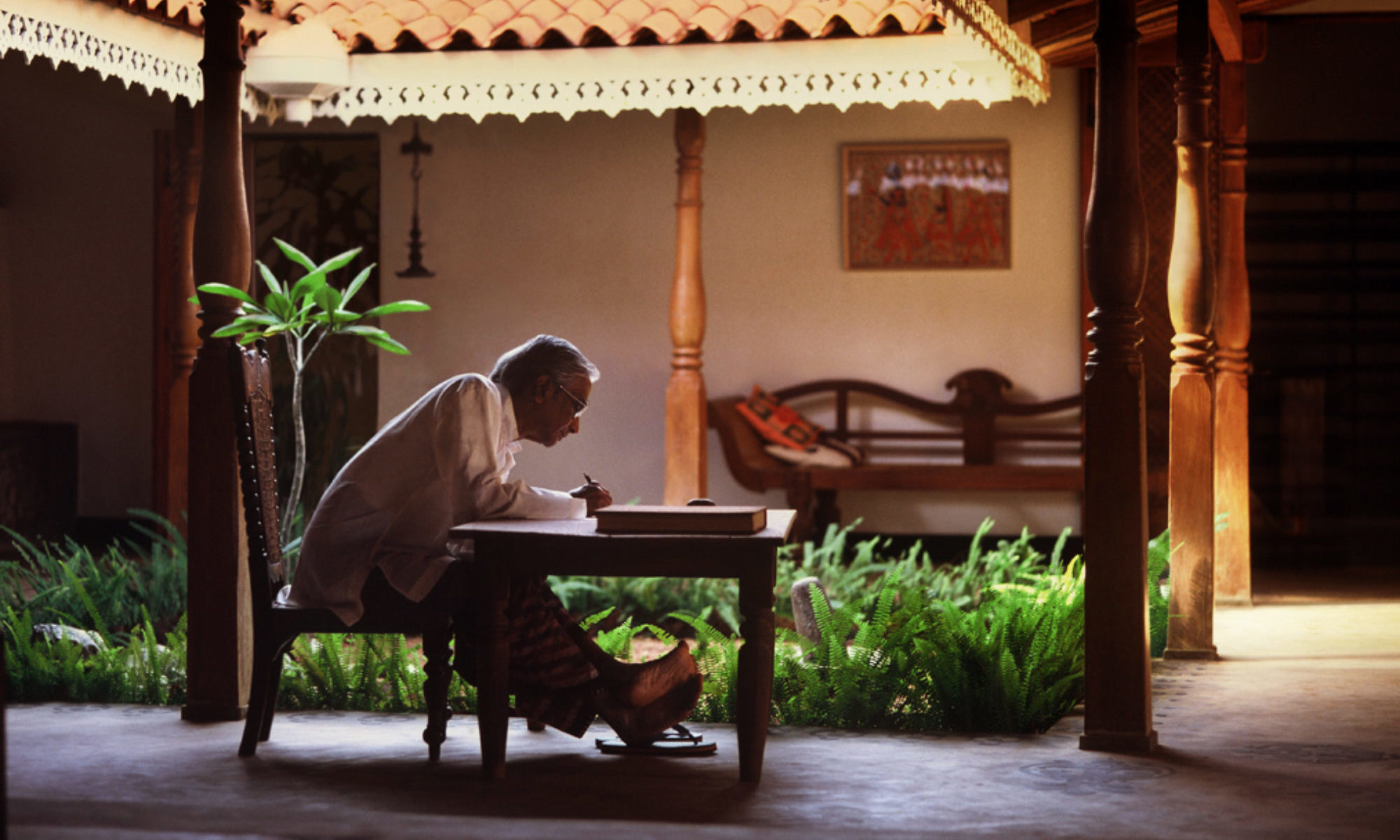Pabāvati (1952)
First staged on 16th September 1952
Vandinna giya dēvāle (1955)
First staged on 14th October, 1955
Rattaran (1954)
Originally written for the radio, was broadcast on 21st October, 1954
First staged on 6th September, 1958
Ēkata Maṭa Hinā Hinā (1954)
Maname (1956)
First performed at the Lionel Wendt theatre in Colombo, Sri Lanka on November 3rd 1956. In February of 1958, it was performed for the first time at open air theatre of the University of Peradeniya, Sri Lanka.
Translated into English by Lakshmi De Silva in Navasilu, Edited by D.C.R.A Goonetilleke (Colombo, September 1984)
Maname is partially influenced by a Buddhist Jataka (morality) tale. Prince Maname is trained in the arts of war and peace at the famous seat of learning in Taksila. He excels in swordsmanship besides the other arts and sciences and, on leaving for his father’s Kingdom, is honored by the title of Dhanuddara, or Royal Archer. His Guru, who is greatly pleased with him, gives him his daughter in marriage as it is customary of that time.
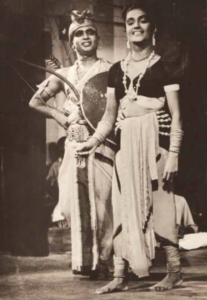
On their journey to the Prince’s kingdom, they travel across a forest where they encounter a band of forest-dwelling savages. The Savage King, enamored by the Princess, accuses the Prince of trespassing on his domain but spares his life on condition that the Prince should hand the Princess to him. The Prince, enraged by the Savage’sattitude, challenges him to a duel. The Prince overpowers the Savage King and asks the Princess to hand over his sword to end the Savage’s life.
The Princess, notwithstanding her husband’s request, pleads him to show mercy on the Savage who in fairness battled with the Prince single-handed without seeking help from his retinue. The Prince, shocked and confused by this unnatural request, loosens his grip on the Savage, who snatching the sword from the Princess’s hands, slays the Prince.
While the Princess laments the untimely death of her husband blaming the Savage for it, the Savage declares his love for her and makes her the Queen of the Forest. In an effort to please the Savage, the Princess confesses that all along, she had intended to hand the sword, not to the Prince but to the Savage King. She claims that his victory over the Prince is partly due to her stratagem. The Savage King, enraged by her betrayal, abandons the Princess who faces death among the wilderness.
Kadāvaḷalu (1958)
First staged on 6th September 1958 at the YMBA theater, Colombo, Sri Lanka
Hasti Kānta Mantarē (1959)
First staged on 1st November 1959 at the YMBA theater, Colombo, Sri Lanka
Elova Gihin Melova Āva (1959)
First staged on 18th October 1959
Vellavehum (1960)
First staged on 24th March 1960
Sinhabahu (1962)
First staged at the open air theatre of the University of Peradeniya, Sri Lanka on August 31st 1961
Translated into English by Lakshmi de Silva (Edited by Yasmine Goonaratne, Sydney, Australia, 1984)
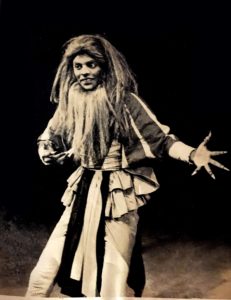
Created in 1961, Sinhabahu is an operatic play based on the conventions of traditional Sinhala theatre and the legendary origin of the Sinhalese race as recounted in the Great Chronicle. The father-son relationship, a dominant theme of the play, adds to its universal character.
Suppadevi, daughter of the King of Vanga (modern Bengal) falling in love with a Lion, runs away with him into the forest. She bears him a son, Sinhabahu by name, and a daughter Sinhasivali. As the children grow up, they notice the physical difference between themselves and their father. Suppadevi reveals her story to her children. Sinhabahu, realizing that he is heir to a throne, persuades his mother and sister to leave their father in the discovery of the world beyond their cave in the forest and in claiming their rightful heritage. Arriving at a dependency of the King of Vanga, they are warmly welcomed by the Regent who, declaring his love for Suppadevi, makes her his queen.
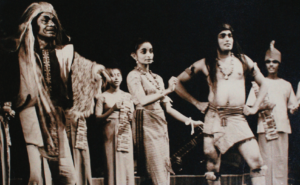
Meanwhile, the lion returning to the den deserted by his family, raves in madness while roaming through villages looking for his wife and children, destroying fields, houses, and defying those who dared come his way. Destitute villagers complaining to the Prince Regent inform him that there is none left to confront the ravaging lion. Sinhabahu declares his willingness to challenge the lion when his mother informs him that the lion is none other than his father looking for them. In spite of this revelation, Sinhabahu keeps the promise he made to the villagers and sets off to hunt the lion.
During the final moment of confrontation between the Lion and his son Sinhabahu, the lion’s compassionate love for his son protects him, diverting the first arrow shot by Sinhabahu away from him. However, after the second arrow is shot, the lion is overcome by anger, corrupting the armor of love which protected him till then. The third arrow pierces his heart and kills him.
Mahāsāra Nāṭakaya (1968)
First staged on 13th January 1968
A three act dialogue comedy with stylized effects composed of song and dance. Fine and subtle lyrics bring to light the differences in society as the dramatist questions the meaning of truth and lies, what appears to be and what really is.
The Queen has lost her ancestral necklace and the palace guards have been mobilized to catch the thief. A Peasant, brought in for questioning by the King, reveals that the Queen’s jewels have indeed been stolen by him to fulfill a request made by none other than the King’s Courtier. When questioned in turn, the Courtier reveals that he only meant to fulfill a request made to him by the court’s Musician. Manipulated into admitting his theft, the Musician accuses the court’s Concubine for her greed to possess the Queen’s jewels. The Concubine is brought in yet she haughtily denies having played a part in the conspiracy. The King seeing that they have all lied to him, sentences them all to jail when the Wiseman of the Court appears and suggests a reenactment of the events leading to the loss of the necklace. The thief is finally caught, it is none other than a Monkey attracted by the shining beauty of the jewels.
Pēmatō Jāyatī Sōkō (1969)
First broadcast as a radio play on 11th April 1957
First staged in 1969
Translated in to English by D.M. de Silva. Salzburg; Institute für Englishe Sparche und Literatur, Universitat Salzburg (1976)
Mahācārya Ediriweera Sarachchandrage Nava Nātya Pahak
Edited by Tissa Karitawasam (1979)
Includes: Nädäyo, Gatkaru Pissuwa, Ä nuwan läbuwā, Gomman kekaniya, Watapuluwē geval bindalā
Vessantara Gīta Nātakaya (1980)
First staged on 16th November 1980
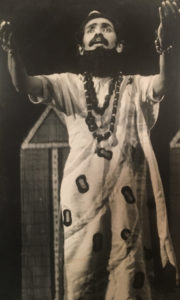
A play with dialogue, song and dance depicting the life King Vessantara in his role as the final Bodhisatwa incarnation. King Vessantara rules over his land with extreme generosity, giving away whatever one might ask from him, till one day, he decides to retreat into the forest with his Queen, his son Jaliya and daughter Krishnajina,abandoning his kingdom and his position as King. They live a simple, carefree life, away from royal duties and responsibilities, the King happy to spend more time with his Queen and children. One day a Brahmin by the name of Jujaka, having heard of King Vessantara’s generosity, asks to take away Jaliya and Krishnajina as he and his wife have no children of their own. Vessantara, in spite of the love he feels for his children, gives them away to Jujaka as the ultimate sacrifice aspiring his next life as the Bodhisatwa.
Kirimuṭṭiya Gangē Giyā (1985)
First staged in 1985
Lōmahansa Nātakaya (1985)
First staged August 22nd 1985
A three act tragedy based on the Maha Paduma Jathaka tale and influenced by 4th century B.C Greek tragedy Hippolytus by Euripides, revealing love deceit followed by death as the inevitable conclusion. This play holds elements of the traditional Nadagam and North Indian music and dance.
King Brahmadatta having wedded a young Princess following the death of his Queen must leave for battle for many months. During his absence, the young Princess falls in love with the King’s son, Prince Paduma. Shocked and repulsed by the Princess’s amorous advances, Prince Paduma threatens to reveal her incestuous conduct to the King. Upon his return, the King finds the Princess ailing and subdued. She makes him believe that she was a victim of Prince Paduma’s violent sexual advances. The King orders his son to be banished from the kingdom and executed. Hearing news of this punishment, the Princess commits suicide by poison. Her lady in waiting confesses the Princess’s doomed love story to the King. Unable to save his son from execution and having lost his wife, the King is left to repent his hasty and misjudged conduct and lament upon his sad and lonely fate.
Bhavakadaturāva (1988)
First staged on 24th August 1988
